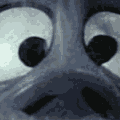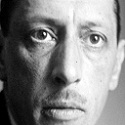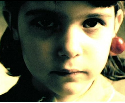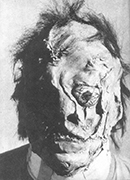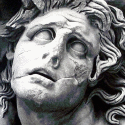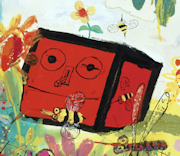|
radlum posted:Any recommendations about the last years of the Roman Empire or the early Middle Ages? I love the chaos and the way the empire finally fell with no bang.
|
|
|
|

|
| # ? May 13, 2024 22:47 |
|
radlum posted:Any recommendations about the last years of the Roman Empire or the early Middle Ages? I love the chaos and the way the empire finally fell with no bang. Wolfram's History of the Goths is a nice survey that covers the period of the fall of the Western Empire and the transition to Germanic kingdoms. He's writing for an academic audience, though, so you have to like that kind of writing. He can be dry at times.
|
|
|
|
Is it ghoulish to suggest the abridged version of Gibbin's Decline and Fall of the Roman Empire?
|
|
|
|
radlum posted:Any recommendations about the last years of the Roman Empire or the early Middle Ages? I love the chaos and the way the empire finally fell with no bang. Chris Wickham's The Inheritance of Rome: Illuminating the Dark Ages 400-1000 is pretty cool, although be prepared for dozens of names to be thrown at you. Or perhaos Guy Halsall's Barbarian Migrations and the Roman West, 376 - 568 for a more focussed book.
|
|
|
|
Seconding Halsall's Barbarian Migrations and the Roman West, but it is basically a text book, so it's fairly dry, and rather expensive. I absolutely loved reading it though.HighClassSwankyTime posted:Is it ghoulish to suggest the abridged version of Gibbin's Decline and Fall of the Roman Empire? Yes. It's an interesting work due to it's own cultural context, but it's also 200 years out of date, and it shows. PittTheElder fucked around with this message at 20:09 on Feb 1, 2014 |
|
|
|
Hammerstein posted:I recently finished The Wages of Destruction: The Making and Breaking of the Nazi Economy by Adam Tooze - and now I'm looking for a similar read about Japan and the Pacific theater. I have read plenty about WWII in Europe, which books would be a good start for Japan ? The Rising Sun: The Decline and Fall of the Japanese Empire, 1936–1945, written by John Toland. Looks at what was going on in Japan and for the Japanese before and throughout the war and won a Pulitzer. I highly reccomend it.
|
|
|
|
What do people think of Simon Winchester? I have Krakatoa and just bought The Men Who United the States but I haven't read either yet. I'm hoping they're both as good as they look.
|
|
|
|
How about survey histories of the Roman Republic and/or Empire? I've gotten From the Gracchi to Nero as a start.
|
|
|
|
Hedrigall posted:What do people think of Simon Winchester? I have Krakatoa and just bought The Men Who United the States but I haven't read either yet. I'm hoping they're both as good as they look. He has a lot of trouble getting to the point, which makes what should be a very interesting subject actually very boring. He also has orientalist tendencies, which come out in full force in Krakatoa. He's not a real historian by any stretch of the imagination, and it shows. He's actually very good when it comes to explaining geology for a popular audience, but he doesn't really spend a lot of time at this, even in the books of his that are focused on geological subjects (Krakatoa, A Crack in the Edge of the World).
|
|
|
|
Are there any good Tibetan history books? Most of the books I'm finding are (as expected) rich white man travelogues and sinophobic romanticism/spiritualism. edit: I see Tibet: A History, but from Amazon reviews it sounds like the ebook version has [see print edition] in the place of any images. Qwo fucked around with this message at 15:10 on Feb 2, 2014 |
|
|
|
PittTheElder posted:Yes. It's an interesting work due to it's own cultural context, but it's also 200 years out of date, and it shows. I love the abridged version, but drat even when I was young I just knew the book has some huge-rear end (often intentional) flaws. Gibbons comments on the Byzantines are nothing but contempt, and that shows as well!
|
|
|
|
Shivers posted:I found Jack Weatherford's Genghis Khan and the Making of the Modern World to be quite excellent. It tells the story of how Genghis Khan went from being a starving nobody to one of the most powerful men in history. The book also details alot about Mongol history, customs and culture. I highly recommmend it. So far I've only read the introduction, but it really puts Geghis Khan on a pedestal. It relates how he built massive road systems, enacted religious tolerance, banned torture (?), and joined disparate cultures that have never met before. The introduction makes no mention of the Mongols' slaughtering entire cities; in fact, it barely mentions the military aspect of Genghis' life. Some choice quotes from the introduction: quote:...When their highly skilled engineers from China, Persia, and Europe combined Chinese gunpowder with Muslim flamethrowers and applied European bell-casting technology, they produced the cannon, an entirely new order of technological innovation... quote:In nearly every country touched by the Mongols, the initial destruction and shock of conquest by an unknown and barbaric tribe yielded quickly an unprecedented rise in cultural communication, expanded trade, and improved civilization. I don't buy into the belief that Genghis Khan was an inhuman monster, but I also don't believe he was the savior of the world. So a book that starts out with ten pages fellating his legacy makes me skeptical. I already bought it, so I might as well read it, but I'll take it all with a grain of salt.
|
|
|
|
Please for the love of god take all history,biography,nonfiction with a grain of salt and be super cynical.
|
|
|
|
Are there any good books about the Holy Roman Empire? Since it existed for such a long period of time I understand that it's quite hard to cover every aspect of its history, so I am mostly looking for an overview. But the more details, the better!
|
|
|
|
What exactly are you looking for? Are you looking for a general German history covering the time when the HRE existed or are you looking something like about how the "empire" functioned?
|
|
|
|
Bagheera posted:I don't buy into the belief that Genghis Khan was an inhuman monster, but I also don't believe he was the savior of the world. So a book that starts out with ten pages fellating his legacy makes me skeptical. I already bought it, so I might as well read it, but I'll take it all with a grain of salt. There has been a lot of revisionist pro-Genghis stuff lately. I think it has its place and re-examinations are good, but I would suggest listening to Dan Carlin's Wrath of the Khans or picking up a less sympathetic book to go along with it to get some balance.
|
|
|
|
Bagheera posted:So far I've only read the introduction, but it really puts Geghis Khan on a pedestal. It relates how he built massive road systems, enacted religious tolerance, banned torture (?), and joined disparate cultures that have never met before. The introduction makes no mention of the Mongols' slaughtering entire cities; in fact, it barely mentions the military aspect of Genghis' life. Some choice quotes from the introduction: And with the way you state your feelings about Mongols, you ought to check out Dan Carlin's Hardcore History podcast oriented on Genghis Khan and the Mongols. He opens the series with a story of a paper on how Mongols changed the world that he wrote in college and a Chinese professor who was rather upset by the thesis. It's pretty fascinating. Download them sooner rather than later, he pulls down old epsodes to compile and sell as audio CDs or something after long enough time has passed.. http://www.dancarlin.com//disp.php/hharchive e:fb coyo7e fucked around with this message at 21:56 on Feb 14, 2014 |
|
|
|
Are there any good books about the Crisis of the Third Century? Specifically, a book that explores the sense/theme/whatever that the empire was crumbling, that the people were turning to "foreign" cults, that generals were usurping the throne left and right? A book that isn't too dry in pointing out all of these problems in the Roman Empire at that time?
|
|
|
|
I just finished Unfamiliar Fishes by Sarah Vowell which is about Hawaiian history from the first missionaries to annexation. I would love to know more about Hawaiian history, and I'm not really particular about the time period, although Vowell mentions several times in her books something about a Hawaiian Renaissance in the 60s and 70s? Anyway, Hawaiian history recommendations?
|
|
|
|
Stravinsky posted:IMHO you should be very cynical at all times when reading history. Whoa. I just binge-read the last 600-700 replies to this thread and took a lot of notes for future books. In the end, just as I wondered "why does everyone hate Europe: A history" I even got to the short debate and this bon mot. It should be in the thread title  If I should add just a few books, besides the obvious Beevor, Norman Davies (on e-reader, it'll hurt you when you drop it) etc., I'd like to recommend: The Emperor of all Maladies by Siddharta Mukherjee, on cancer medicine The Malaria Capers by Robert M. Desowitz is a great read. his other books are so-so, although parts of New Guinea Tapeworms and Jewish Grandmothers are ok. Punch and Imbibe! by David Wondrich, on punches and cocktails We wish to inform you that tomorrow we will be killed with our families by Philip Gourevitch and the obvious Shake Hands with the Devil:The failure of Humanity in Rwanda by Roméo Dallaire. Make sure to pick up the documentary film (shaking hands...) as well. Children of Cambodia's Killing Fields compiled by Dith Pran is not edited history, but survivor (and sometimes perpetrator) accounts. This will hurt you. The Fall of Yugoslavia by Misha Glenny was interesting, but got outdated when Kosovo happened. The Sixth Extinction by Richard Leakey is wrong on the demise on great American mammals in recent times, but an interesting read apart from that. In the wake of the plague by Norman F. Cantor was a quick an interesting read 20 or so years ago. I might like suggestions for better books? Seconding the Poisoner's Handbook by Deborah Blum, Salt by Mark Kulansky (foodie and genocide trail building up here), Legacy of Ashes, The Scramble for Africa (on my mother's recommendation), The crusades through arab eyers (Maalouf). Hannah Arendt's Eichmann in Jerusalem might also appear here, I think? Soon to be read: And the band played on, mentioned earlier A brief history of The Vikings by Jonathan Clements - being Danish, viking history has always been part of history lessons and museum tours but I thought I'd get a non-Scandinavian perspective on my forefathers. We tend to be a bit extra biased on the subject around here. Oh, and I would have loved to be part of an empire that ruled Scandinavia and the UK. Only problem is it was never anything near an empire, which was why Aethelred got away with his massacre. Also, don't ever contemplate reading anything with the name Ambrose on the cover. e:random stuff. rasser fucked around with this message at 18:10 on Feb 17, 2014 |
|
|
|
Can anyone reccomend a book about Europe between the first and second world wars? I've read a fair amount about what happened in Germany during the period and about the Spanish Civil War, but I'd like to read something that covered the whole of Europe and the politics of the 20s and 30s.
|
|
|
|
Danger - Octopus! posted:Can anyone reccomend a book about Europe between the first and second world wars? I've read a fair amount about what happened in Germany during the period and about the Spanish Civil War, but I'd like to read something that covered the whole of Europe and the politics of the 20s and 30s. For some weird experimental history, check 1926: Living on the Edge of Time. It takes the theoretical approach that describing a year in a traditional narrative, with a beginning and an end, makes it impossible to approach the sense of living in that year. That's why the book is divided into a large amount of "conceptual" chapters, which link to each other in the text (literally with references in the middle of chapters). In the introduction the reader is encouraged not to read it 'from beginning to end', but to follow these internal links when interested. It should probably be considered more of a form experiment, rather than an attempt to analyse processes and events in the year 1926, as a more traditional history would. Nevertheless, a very interesting book, filled with interesting factoids and obscure quotes from eminent figures (some stuff on civil servants vs. workers by Hitler springs to mind).
|
|
|
|
.
chernobyl kinsman fucked around with this message at 03:18 on Jul 10, 2017 |
|
|
|
|
gohuskies posted:The Rising Sun: The Decline and Fall of the Japanese Empire, 1936–1945, written by John Toland. Looks at what was going on in Japan and for the Japanese before and throughout the war and won a Pulitzer. I highly reccomend it. Just received it in the mail and will dig in over the weekend. Thanks for the recommendation, I already wanted to buy it after seeing several reviews but found no Kindle version, got it as paperback now. I finished Eagle Against the Sun: The American War with Japan by Ronal H. Spector. It's a good summary of the Pacific War from the American perspective and offers some interesting insight into the army vs navy struggle within the US, but otherwise offers nothing groundbreaking. Can't wait to read an account from the Japanese side now.
|
|
|
|
Looking for recommendations, if no one minds. What's a good history of English/Scotland/Wales/Ireland? Or rather, good histories. I don't mind reading several books covering different eras if that's the best way to do it. As for Middle Eastern history, I read Destiny Disrupted as recommended to me in this thread a couple of years ago, and followed it up with The Great Arab Conquests. Now I'd like to find books covering the various caliphates in more depth, up to and of course including The Ottoman Empire/Mughal Empire. A good book covering the history of the area prior to the rise of Islam would also be well received. I also read Norman Davies' Europe: A History as was recommended to me in this thread, and that massive tome left me with more questions and headaches due to his breakneck paced all-inclusive writing. (Not that that's a bad thing, I'm just kind of dumb) The book often felt like Davies was attempting to present his history to readers already well versed in European history, but in a new way, rather than teaching the completely ignorant, like me. At the same time, he seemed to discourage people from reading national histories due to constantly shifting borders and politices, etc. so now I'm wondering how to look for more European history if I'm to avoid things like "History of France" or "History of Poland" or what have you. Should I search for more European history in the context of time periods or specific dynasties/kingdoms? At the moment I'd like to read more about European history in the pre-Renaissance era. Any recommendations in that regard would be great. And finally, are there any good books about Manchuria? In just about every book of East Asian history I've read, whenever the names Khitan or Jurchen or whatever pop up, they tend to be treated as nothing more than problematic border peoples that cause trouble for the Chinese and the Koreans from time to time and not much else. "King/Emperor so-and-so strengthened his reign by expanding the border into Jurchen territories."
|
|
|
|
Grand Fromage posted:There has been a lot of revisionist pro-Genghis stuff lately. I think it has its place and re-examinations are good, but I would suggest listening to Dan Carlin's Wrath of the Khans or picking up a less sympathetic book to go along with it to get some balance. I've heard the podcast and it forms about 90% of what I know about the Mongols. Carlin comes down pretty hard on the "Ghengis was a monster" side of the debate, but he makes a lot of good points. Maybe this book will balance the argument out a bit. On a side note, it's a drat shame that The Sack of Baghdad isn't taught in history courses in the US. It truly was one of the history's worst tragedies.
|
|
|
|
Spills the Moon posted:And finally, are there any good books about Manchuria? In just about every book of East Asian history I've read, whenever the names Khitan or Jurchen or whatever pop up, they tend to be treated as nothing more than problematic border peoples that cause trouble for the Chinese and the Koreans from time to time and not much else. "King/Emperor so-and-so strengthened his reign by expanding the border into Jurchen territories." The book that immediately comes to mind is China Marches West, which seems to have a rather good reputation for it's content, although I'm finding it fantastically boring. While it does cover the late Ming period and the Manchu's rise to forming the Qing dynasty, it doesn't cover the earlier stuff, and is primarily about the Qing push into Central Eurasia.
|
|
|
|
Hammerstein posted:Just received it in the mail and will dig in over the weekend. Thanks for the recommendation, I already wanted to buy it after seeing several reviews but found no Kindle version, got it as paperback now. I read this book for the Japanese perspective, The Pacific War: 1931-1945, a few years back for my thesis capstone. I recall it being a pretty good read.
|
|
|
|
I'm in an Italian history binge, and I'm interested in the Merchant Republics era, specially Venice, any good books about them?
|
|
|
|
radlum posted:I'm in an Italian history binge, and I'm interested in the Merchant Republics era, specially Venice, any good books about them? A History of Venice by John Julius Norwich would be right up your alley.
|
|
|
|
radlum posted:I'm in an Italian history binge, and I'm interested in the Merchant Republics era, specially Venice, any good books about them? I read Roger Crowley's City of Fortune a year or two back and it's a good read. Not an academic history, so if that's what you're looking for then you'll want something with better documentation, but it's well-written and I learned a lot about Venetian history that I never knew.
|
|
|
|
vyelkin posted:I read Roger Crowley's City of Fortune a year or two back and it's a good read. Not an academic history, so if that's what you're looking for then you'll want something with better documentation, but it's well-written and I learned a lot about Venetian history that I never knew. I can second this. Not quite "scholarly" but apparently well-researched and footnoted and is very well-written. Moves along at a good clip and goes into a pretty deep level of detail. I enjoyed it. That said, big fan of Norwich anything, too, so there you go...
|
|
|
|
Any suggestions on Cold War-era spy books? I'm considering Bob Gates' From the Shadows - anything else to take a look at? Something from the Soviet perspective would be a bonus.
|
|
|
|
CmdrSmirnoff posted:Any suggestions on Cold War-era spy books? I'm considering Bob Gates' From the Shadows - anything else to take a look at? Something from the Soviet perspective would be a bonus. The Sword and the Shield is supposed to be the definitive history of the KGB but I haven't read it. Blind Man's Bluff is about American submarine spying and it's pretty great.
|
|
|
|
PittTheElder posted:The book that immediately comes to mind is China Marches West, which seems to have a rather good reputation for it's content, although I'm finding it fantastically boring. While it does cover the late Ming period and the Manchu's rise to forming the Qing dynasty, it doesn't cover the earlier stuff, and is primarily about the Qing push into Central Eurasia. Cool, thanks! That sounds like it could be interesting. Have you, or anyone else read The Manchu Way I'm also thinking of picking that one up, but at the moment I'm hesitating.
|
|
|
Bagheera posted:So far I've only read the introduction, but it really puts Geghis Khan on a pedestal. It relates how he built massive road systems, enacted religious tolerance, banned torture (?), and joined disparate cultures that have never met before. The introduction makes no mention of the Mongols' slaughtering entire cities; in fact, it barely mentions the military aspect of Genghis' life. Some choice quotes from the introduction: It's a really interesting book in that it's basically a popular-audience version of this: http://en.wikipedia.org/wiki/The_Secret_History_of_the_Mongols . The downside is that, yeah, it's unashamedly pro-mongol.
|
|
|
|
|
Spills the Moon posted:Cool, thanks! That sounds like it could be interesting. Have you, or anyone else read The Manchu Way I'm also thinking of picking that one up, but at the moment I'm hesitating. I have not.
|
|
|
|
smr posted:I can second this. Not quite "scholarly" but apparently well-researched and footnoted and is very well-written. Moves along at a good clip and goes into a pretty deep level of detail. I enjoyed it. Thanks for the suggestions. Bought City of Fortune and Inheritance of Rome; my history books bookstand is starting to look good. Anyway, just to finish my shopping spree, any suggestions about the Inquisition (Spanish or Medieval)??
|
|
|
|
radlum posted:Thanks for the suggestions. Bought City of Fortune and Inheritance of Rome; my history books bookstand is starting to look good. Anyway, just to finish my shopping spree, any suggestions about the Inquisition (Spanish or Medieval)?? The Cheese and the Worms by Carlo Ginzburg is a good look into a trial of an Italian man who said there was a common element that tied all religions together and that life sprang up like worms on cheese.
|
|
|
|

|
| # ? May 13, 2024 22:47 |
|
Any good books about the process of Denazification in Germany post-WWII? I'm really interested in how the country and its people, as a whole, came to terms with aiding and abetting the Nazis and how their children responded.
|
|
|










 Yes, it's like a lava lamp.
Yes, it's like a lava lamp.


